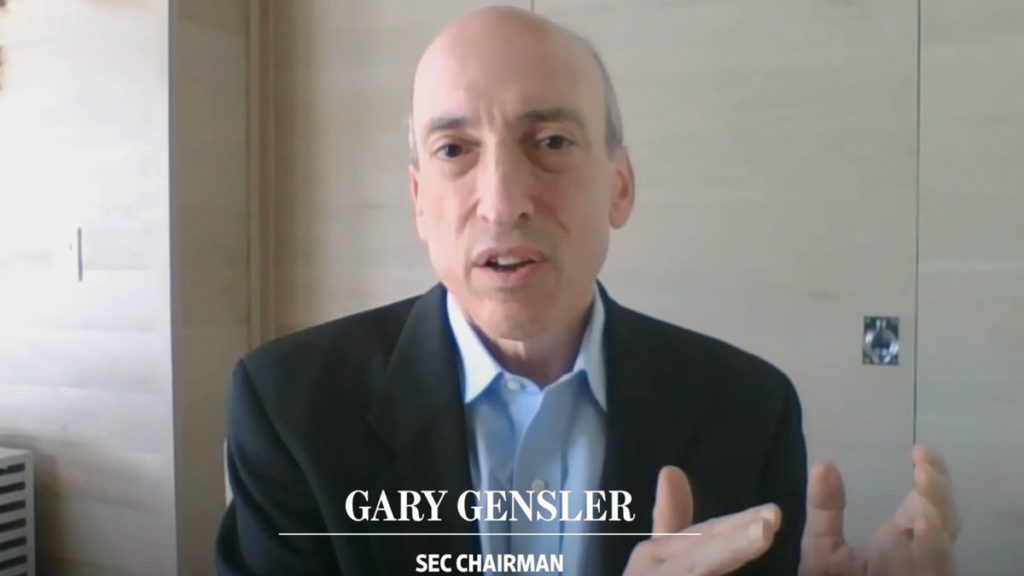In a recent speech, Gary Gensler, SEC Chairman, made the assertion that there could be a significant impact on this multi-trillion dollar capital market. A senior member of Congress expressed concern Tuesday that efforts in Congress to draft legislation to regulate the crypto industry would compromise regulations that govern the capital markets more broadly.
He initially declined to comment on the proposed legislation introduced last week by Senators Cynthia Lummis and Kirsten Gillibrand, saying that he would prefer a discussion of the proposed legislation with them directly. Nevertheless, he indicated that policy changes aimed at crypto coins could potentially impact stock exchanges or mutual funds if they were adopted.
Regulations Are Still Vague
Mr. Gensler said at The Wall Street Journal’s CFO Network Summit:
“We don’t want to undermine the protections we have in a $100 trillion capital market. Like behaviors should have like treatment.”
During an interview, Mr. Gensler was asked if the recent decline in cryptocurrency prices has added a new dimension to the SEC’s concerns about the market. He said, “the urgency has always existed, but it has been highlighted now more than ever.”
Lummis and Gillibrand’s bill, which is unlikely to get passed in this Congress, is intended to develop “a comprehensive regulatory framework for digital assets,” said the bill’s sponsors. The bill would create more clarity in relation to which cryptocurrencies meet the SEC’s definition of securities that should be regulated, an issue that is rallying the industry towards the bill.
There would, however, be provisions in the bill to exempt some cryptocurrencies from the authority of the SEC. In addition, the new concept would be incorporated into the nearly 90-year-old securities laws, which would allow issuers of certain digital tokens to comply with fewer disclosure requirements than companies that are publicly traded.
Mr. Gensler stated that he is not planning to extend his jurisdiction in any way. In this case, however, the tokens are being offered to the public, and the public is hoping for a better future of its own. Security whose characteristics resemble those of a security contract is an investment contract.
I found Mr. Gensler’s remarks to be contrasted with those made by his counterpart at the SEC’s sister regulatory agency, the Commodity Futures Trading Commission, which would gain a significant amount of authority under the Lummis-Gillibrand bill.
Rostin Behnam, the Chairman of the Commodity Futures Trading Commission (CFTC), spoke last week at a conference regarding the proposed legislation, and he reiterated that the law does a good job of defining securities versus non-security assets in the crypto market and empowering the CFTC to police the latter category of assets.











